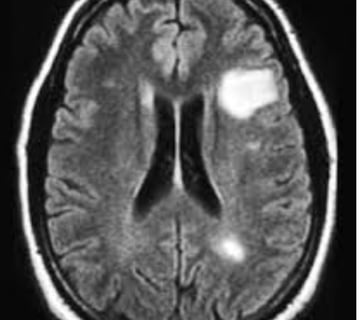
Health is a crown on the heads of the healthy that only the sick can see.

Benefits of Manuka honey for multiple sclerosis
Discover how Islamic fasting and manuka honey can benefit those with multiple sclerosis (MS). Learn about their anti-inflammatory, antioxidant, and neuroprotective properties, and how fasting methods may enhance autophagy and support nerve repair alongside traditional treatments.
NERVOUS SYSTEM
Dr Hassan Alwarraqi
10/22/2024


Benefits of Manuka honey for multiple sclerosis
Manuka Honey and Its Role in the Treatment of Multiple Sclerosis (MS)
Manuka honey is celebrated for its medicinal properties and is increasingly being explored for its potential in managing various health conditions.
While it's most commonly known for its use in wound healing, skincare, and digestive health, emerging research suggests it may offer benefits for people with chronic autoimmune diseases like Multiple Sclerosis (MS).
MS is a debilitating disease that affects the central nervous system, causing inflammation, nerve damage, and a range of symptoms from fatigue to impaired motor function.
Although Manuka honey is not a cure for MS, its anti-inflammatory, antioxidant, and neuroprotective properties may provide supportive benefits for patients managing this condition.
Is Manuka Honey Beneficial for MS?
While there’s no scientific evidence to suggest that Manuka honey can treat or cure MS, it may offer secondary benefits.
MS is characterized by inflammation and oxidative damage to nerve cells. Manuka honey is rich in methylglyoxal (MGO), which has potent anti-inflammatory and antioxidant effects.
These properties can potentially reduce inflammation and oxidative stress—factors that contribute to the progression of MS.
Though these benefits can promote overall health, it’s essential to note that Manuka honey should not replace conventional treatments like disease-modifying therapies (DMTs) or prescribed medications.
Can Manuka Honey Repair Nerve Damage?
Currently, there is no evidence to suggest that Manuka honey, or honey in general, can directly repair nerve damage.
In MS, nerve damage is caused by the immune system attacking the protective myelin sheath around nerves.
While Manuka honey’s anti-inflammatory properties may reduce inflammation, it cannot regenerate or repair nerve tissue.
Ongoing research into nerve repair focuses on advanced medical treatments rather than natural remedies.
How Does Manuka Honey Affect the Brain?
Manuka honey's antioxidants may indirectly support brain health by reducing oxidative stress, a key factor in neurodegenerative conditions like MS.
By minimizing oxidative damage to brain cells, antioxidants could theoretically help manage neurological symptoms.
However, there is no concrete evidence linking Manuka honey specifically to brain protection or improved cognitive function in MS patients.
Best Treatment Options for MS
The primary treatment for MS includes a combination of disease-modifying therapies (DMTs), lifestyle changes, and supportive therapies.
Common treatments include:
- DMTs : Medications that reduce the frequency and severity of MS relapses.
- Steroids : Used to treat acute flare-ups.
- Physical therapy : Helps with mobility, strength, and quality of life.
- Lifestyle changes : Regular exercise, a balanced diet, and stress management can positively impact MS symptoms.
While Manuka honey may complement overall health, it should not be used as a replacement for these established treatments.
Who Should Avoid Manuka Honey?
Though generally safe, some individuals should avoid consuming Manuka honey:
- People with diabetes : Due to its high sugar content, honey can affect blood sugar levels.
- Infants under one year : Honey can carry a risk of botulism, a serious illness caused by bacteria.
- Allergic individuals : People with known allergies to honey or bee products should avoid consuming it.
Manuka Honey’s Unique Properties
Manuka honey comes from bees that pollinate the Manuka bush, native to New Zealand.
What makes it unique is its high concentration of methylglyoxal (MGO), which gives it potent antibacterial and anti-inflammatory effects.
The higher the MGO rating, the stronger the honey’s medicinal properties.
Manuka Honey vs. Regular Honey
The key difference between Manuka honey and regular honey lies in its MGO methylglyoxal content.
While regular honey contains antibacterial agents like hydrogen peroxide, Manuka honey has a much stronger, more stable antimicrobial effect due to MGO, making it more effective for medicinal use, particularly in wound care and infection management.
Is It Safe to Eat Manuka Honey Every Day?
Consuming Manuka honey daily in moderation is generally safe for most people and may help with immune support and digestive health. However, due to its high sugar content, those with conditions like diabetes should monitor their intake closely.
Why Is Manuka Honey Expensive?
Manuka honey is costly due to its limited production and high demand.
Produced only in specific regions of New Zealand, it requires unique conditions for bees to pollinate the Manuka bush.
The higher the MGO methylglyoxal content, the more expensive the honey, as it provides stronger health benefits.
MGO in Manuka Methylglyoxal Honey
MGO, or methylglyoxal, is the compound that gives Manuka honey its potent antibacterial properties.
The higher the MGO rating, the more powerful its antimicrobial effects, making it an excellent choice for medical applications.
Manuka Honey Benefits for the Body Systems
Manuka honey offers a wide range of benefits for various systems in the body:
Immune System : Its antibacterial properties boost immunity by helping the body combat infections. It may also modulate immune responses, reducing chronic inflammation.
2. Digestive System : It supports gut health, soothes digestive issues like acid reflux, and may help manage peptic ulcers.
3. Skin and Wound Healing : Manuka honey promotes wound healing, treats burns, and is effective for acne and other skin conditions.
4. Respiratory System : It relieves sore throats and helps manage upper respiratory infections like colds and sinusitis.
5. Cardiovascular System : Its antioxidants may reduce inflammation in blood vessels, helping lower cholesterol levels and protecting against heart disease.
6. Nervous System : While not proven to regenerate nerves, it may offer neuroprotective benefits through its antioxidant properties, supporting brain health.
7. Musculoskeletal System : Its anti-inflammatory effects may help with muscle and joint inflammation, making it a natural aid for conditions like arthritis.
8. Oral Health : Manuka honey supports gum health by reducing bacterial growth and may even help prevent cavities.
9. Urinary and Reproductive Systems : It may help prevent urinary tract infections and support reproductive health through its anti-inflammatory effects.
Conclusion
Manuka honey offers numerous health benefits due to its antibacterial, anti-inflammatory, and antioxidant properties.
While it should not be viewed as a primary treatment for conditions like MS, it can complement traditional therapies by supporting overall health, reducing inflammation, and providing immune support.
Always consult with a healthcare provider before adding Manuka honey to your daily routine,
especially if you have specific health concerns such as diabetes or autoimmune disorders.
Islamic fasting outside of Ramadan
voluntary fasting, may offer multiple sclerosis (MS) patients a flexible, complementary approach to managing their condition.
Voluntary fasts, such as those on Mondays, Thursdays, or the 13th-15th days of the lunar month, can be adapted to the individual’s health and capacity, providing potential health benefits similar to those seen during Ramadan fasting.
However, MS patients must consider both the potential advantages and challenges of fasting as part of their disease management.
Potential Benefits of Islamic Fasting for MS (Outside of Ramadan)
1. Reduction of Inflammation: Voluntary fasting may help lower inflammation, a key driver of MS. By reducing inflammatory markers, fasting may alleviate symptoms or prevent flare-ups.
2. Immune System Modulation: Fasting has been shown to regulate the immune system, which could reduce the frequency and severity of immune attacks on the central nervous system in MS.
3. Autophagy and Cellular Repair: Fasting may trigger autophagy, the body’s process of cellular repair. Although more research is needed, this process could help repair cells damaged by MS.
4. Flexibility and Adaptability: Voluntary fasting is more flexible than Ramadan fasting, allowing MS patients to fast based on their energy levels, avoiding overexertion.
5. Improved Metabolism and Weight Management: Like intermittent fasting, voluntary fasting may improve metabolism and help manage weight, especially for MS patients dealing with weight gain due to immobility or medication.
Challenges and Considerations for Islamic Fasting in MS Treatment
1. Energy Levels: Fasting can exacerbate fatigue, a common MS symptom. Patients should listen to their bodies and adjust fasting schedules to avoid prolonged fatigue.
2. Hydration: Dehydration is a concern during fasting, particularly for MS patients who experience heat sensitivity or fatigue. Proper hydration during non-fasting hours is crucial.
3. Medication Timing: Adjusting medication schedules to accommodate fasting can be challenging, but voluntary fasting’s flexibility allows for adjustments that minimize disruptions to treatment.
4. Nutritional Balance: Fasting provides an opportunity to focus on nutrient-rich meals during non-fasting hours, helping to sustain energy levels and support overall health.
Practical Tips for MS Patients Considering Islamic Fasting
1. Consult with a Healthcare Provider: Before starting fasting, MS patients should discuss potential impacts on their condition with their doctor.
2. Start Slowly: Gradually introduce fasting by beginning with one or two days per week and increasing frequency as tolerated.
3. Focus on Hydration: Drink water and electrolyte-rich fluids during non-fasting hours to prevent dehydration.
4. Listen to Your Body: If fasting worsens symptoms, adjust the frequency or duration of fasts.
5. Prioritize Rest: Schedule adequate rest on fasting days to manage fatigue.
Conclusion
Islamic fasting outside of Ramadan offers potential benefits for people with MS, such as reducing inflammation and improving immune regulation.
With careful planning and flexibility, voluntary fasting can be adapted to an MS patient’s unique needs, making it a potentially helpful complementary approach to traditional MS treatments.
Frequently Asked Questions About the Benefits of Manuka Honey and Intermittent Fasting for Multiple Sclerosis (MS)
Can Manuka Honey Cure or Treat Multiple Sclerosis?
No, there is no scientific evidence to suggest that Manuka honey can cure or treat multiple sclerosis.
However, the anti-inflammatory and antioxidant properties of Manuka honey may provide supportive benefits for individuals living with this condition.
It may help reduce inflammation and oxidative stress, both of which contribute to disease progression, but it should be used as a supplement rather than a replacement for conventional treatments.
Can Manuka Honey Help Repair Nerve Damage Caused by Multiple Sclerosis?
No, there is no evidence to suggest that Manuka honey or any other type of honey can directly repair nerve damage. Nerve damage in multiple sclerosis occurs due to the immune system attacking the protective sheath around nerves (myelin).
While Manuka honey may reduce inflammation, it cannot regenerate or repair nerve tissue.
How Does Manuka Honey Affect the Brain and Multiple Sclerosis?
The antioxidants in Manuka honey may indirectly support brain health by reducing oxidative stress, a key factor in neurodegenerative conditions like multiple sclerosis.
Reducing oxidative damage may help manage neurological symptoms. However, there is no conclusive evidence linking Manuka honey specifically to brain protection or improved cognitive function in MS patients.
What Are the Best Treatment Options for Multiple Sclerosis?
The primary treatments for multiple sclerosis include disease-modifying therapies, lifestyle changes, and supportive treatments. Common treatments include medications to reduce the frequency and severity of relapses, steroids for acute flare-ups, physical therapy to aid mobility and strength, and lifestyle adjustments such as exercise, a balanced diet, and stress management.
Manuka honey should be used as a supplement to traditional treatment, not as a replacement.
Who Should Avoid Consuming Manuka Honey?
Although Manuka honey is generally safe, certain individuals should avoid it: people with diabetes due to its high sugar content, infants under one year old due to the risk of botulism, and those with known allergies to honey or bee products.
What Are the Potential Benefits of Islamic Fasting (Outside Ramadan) for MS Patients?
Voluntary fasting outside of Ramadan may offer benefits for MS patients, such as reducing inflammation, regulating the immune system, stimulating autophagy (cellular cleansing), and improving metabolism and weight management. Voluntary fasting is flexible and can be adapted to the patient’s energy levels.
However, MS patients should consider challenges such as energy levels, hydration, medication timing, and maintaining nutritional balance.
What Challenges Might MS Patients Face During Islamic Fasting (Outside Ramadan)?
MS patients may face challenges during fasting, such as increased fatigue, dehydration, difficulty managing medication schedules, and the need to maintain nutritional balance. It is essential to listen to the body, drink plenty of fluids during non-fasting hours, and adjust the fasting schedule as needed to avoid worsening symptoms.
How Can MS Patients Integrate Manuka Honey and Intermittent Fasting into Their Treatment Plan?
MS patients should consult their healthcare provider before adding Manuka honey or intermittent fasting to their treatment plan. Manuka honey can be incorporated in moderate amounts to support overall health but should not replace conventional treatments.
Fasting should be introduced gradually, with a focus on proper hydration and nutrition during non-fasting hours.
It is crucial to monitor the body’s response and adjust the plan as needed.
keywords
Manuka honey, rich in methylglyoxal (MGO), offers anti-inflammatory, antioxidant, and neuroprotective benefits that may support Multiple Sclerosis (MS) treatment by reducing oxidative stress, promoting immune system modulation, and aiding wound healing and digestive health, while fasting methods like intermittent fasting, the fasting mimicking diet (FMD), and Islamic fasting may enhance autophagy, inflammation reduction, and potentially support nerve damage repair and myelin regeneration when used alongside disease-modifying therapies (DMTs),Islamic fasting, Multiple Sclerosis (MS), voluntary fasting, inflammation reduction, immune system modulation, autophagy, cellular repair, flexibility, energy levels, hydration, medication timing, nutritional balance, weight management.






















